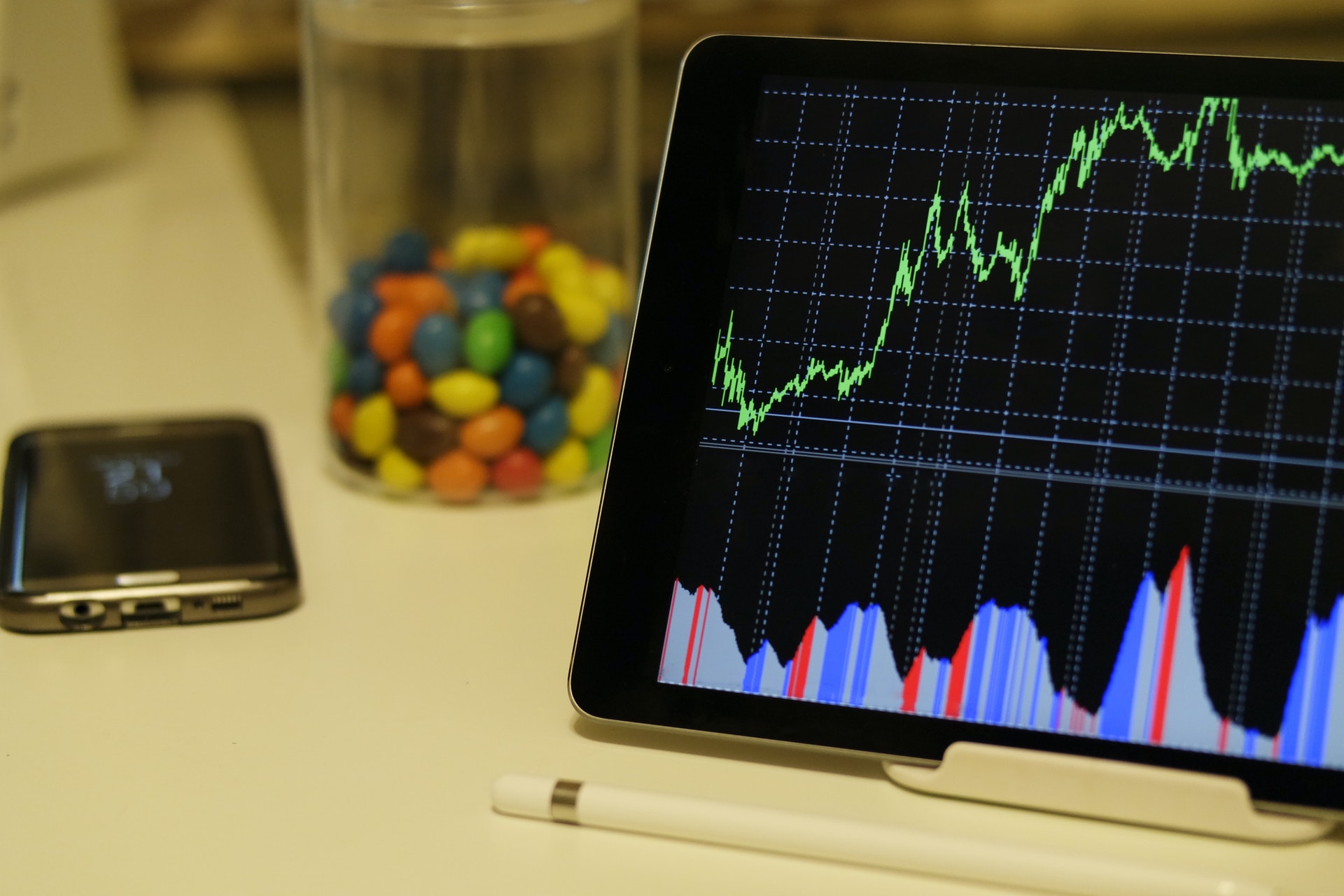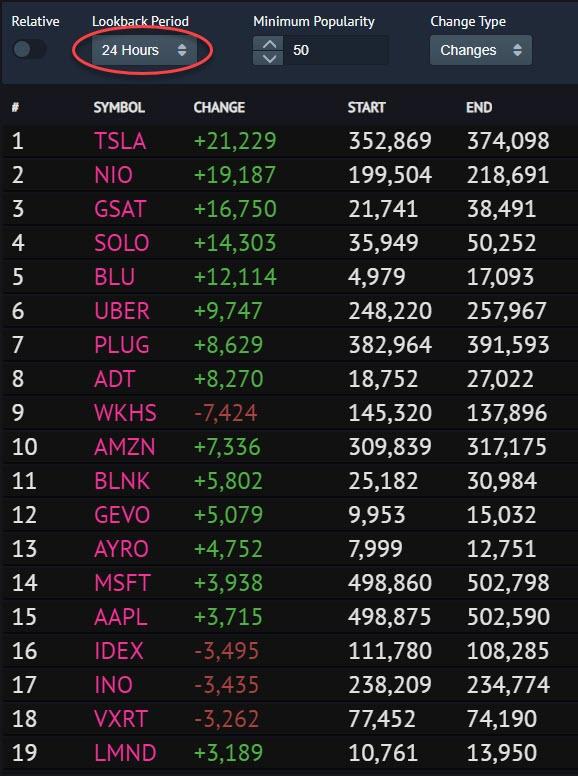For Robinhood, The Smartest Choice Is To Keep User Data Private
Submitted by Silverlight Asset Management, LLC on October 18th, 2020
What do you get when you combine: alluring apps, extra free time, and zero trading commissions? A retail trading boom, of course.
Citadel Securities estimates around 25% of stock trading this year is linked to retail investors, up from about 10% in 2019. Many of the trades occur in Robinhood accounts.
Robinhood recently made news when it stopped openly sharing its users’ trading data, but now management is rethinking that decision. “We’re looking into it,” Robinhood co-founder Vladimir Tenev said in an interview with Bloomberg.
If Robinhood’s goal is to prioritize the best interest of its customers, the smartest choice is to keep their data private. Maintaining data privacy shields retail investors from hedge funds as well as their own heat chasing tendencies.
How The ‘Smart Money’ Crowd Uses Robinhood Data
We live in a time when people are just beginning to realize how valuable their data is. To learn more about that, readers should check out Netflix’s new film, The Social Dilemma.
Robintrack.net is an independent website that used Robinhood data to monitor how many of their customers held particular stocks over time. The site produced charts and tables conveying the relationship between price momentum and popularity, as shown below.

Robinhood customers used these “scoreboards” to generate trading ideas, as did certain hedge funds. One of those hedge funds was reportedly Point72, run by Wall Street legend, Steve Cohen.
When the Robinhood data feed went dark, Business Insider reported Point72 immediately started calling around to other trading platforms and investing apps, searching for similar data the firm could use to generate "new trading signals".
The owner of Robintrack.net told Business Insider he had seen evidence that Point72 and quant hedge fund D.E. Shaw were trying to scrape the site's data. The report also says Cohen's fund wasn’t the only one calling around to other platforms.
My first thought reading this story was: “It’s not a fair fight.”
Steve Cohen is one of the smartest, most competitive traders on the planet. Rumor has it he partly inspired the Bobby Axelrod character from Showtime’s hit show, Billions.
Like Axelrod’s character on the show, Cohen employs a legion of other smart traders, armed with the most cutting-edge trading technology. Point72 and D.E. Shaw are not the kind of firms anyone should want trolling their trading data. These are funds that literally eat complacent capital for breakfast, lunch and dinner. They exist to maximize returns for their stakeholders.
If Robinhood wants to be viewed as a trusted brokerage partner instead of a hangout spot for risky heat chasers, it should focus its efforts on helping its stakeholders achieve a similar goal. That starts with protecting its users’ private information.
How The Retail Crowd Uses Robinhood Data
In 1906, a man named Sir Francis Galton visited a livestock fair. While there, the statistician and cousin of Charles Darwin asked around 800 people to guess the weight of an ox. The average guess of 1197 pounds only missed the true weight of the Ox by a mere 0.01%. This was surprising to Galton, but no fluke.
In the Wisdom of Crowds, James Surowiecki uses stories like this to illustrate the principle of group think, showing how large diverse groups tend to be better problem solvers, forecasters, and decision-makers than individuals or an elite few.
Surowiecki writes, “If you can assemble a diverse group of people who possess varying degrees of knowledge and insight, you’re better off entrusting it with major decisions rather than leaving them in the hands of one or two people, no matter how smart those people are.”
Another classic example from the book is the ‘jelly-beans-in-a-jar’ experiment. This test, originally conceived by finance professor Jack Treynor, has been replicated by many, as shown in the following video demonstration.
If a ‘wise crowd’ is typified by independent actors, then popularity scoreboards that promote herding are obviously a bad idea.
Here is how a section of Robintrack’s website explains the utility of its information:
One of the most useful things that you can do with the data that this site provides is to figure out how people are reacting to moves in the market. Depending on if people are buying the dip, getting onboard during a pump because they think it's going to go higher, or taking profits, this data lets you observe each of those different situations and plan your own trading accordingly.
Blindly “buying dips” and “getting onboard during a pump” are not sound investment strategies. These are tactics employed by speculators, which would explain the above-average risk profile of Robinhood’s most popular stocks.
Ryan Downie of The Motley Fool points out that the most owned stocks amongst Robinhood users have mostly lagged the market since April, and “even in those cases that have delivered favorable returns, a more nuanced analysis shows that investors may have taken on too much volatility to justify those gains.”
By enticing a new generation of investors to take a more active interest in the stock market, Robinhood has achieved something admirable. It can empower people to take a more active role in managing their financial affairs. This will all backfire, however, if it leads to losses and declining trust in capital markets.
The current market is dominated by a confluence of momentum factors. Rather than republishing data that encourages even more momentum chasing, a healthier approach would be for Robinhood to broaden the depth of its investor education efforts—similar to Schwab and Fidelity.
Start educating people more on valuation and price momentum. That way, retail investors can view markets through a fuller spectrum, more similar to the smart money crowd, which would help level the playing field. Even old-school newspapers show momentum stats—like a stock’s 52-week high and low—alongside valuation metrics, like a P/E ratio.
Bottom-line: empowering individual investors makes capital markets more efficient, which ultimately benefits everyone.
Originally published by Forbes. Reprinted with permission.
This material is not intended to be relied upon as a forecast, research or investment advice. The opinions expressed are as of the date indicated and may change as subsequent conditions vary. The information and opinions contained in this post are derived from proprietary and nonproprietary sources deemed by Silverlight Asset Management LLC to be reliable, are not necessarily all-inclusive and are not guaranteed as to accuracy. As such, no warranty of accuracy or reliability is given and no responsibility arising in any other way for errors and omissions (including responsibility to any person by reason of negligence) is accepted by Silverlight Asset Management LLC, its officers, employees or agents. This post may contain “forward-looking” information that is not purely historical in nature. Such information may include, among other things, projections and forecasts. There is no guarantee that any of these views will come to pass. Reliance upon information in this post is at the sole discretion of the reader.
Testimonials Content Block
More Than an Investment Manager—A Trusted Guide to Financial Growth
"I’ve had the great pleasure of having Michael as my investment manager for the past several years. In fact, he is way more than that. He is a trusted guide who coaches his clients to look first at life’s bigger picture and then align their financial decisions to support where they want to go. Michael and his firm take a unique and personal coaching approach that has really resonated for me and helped me to reflect upon my core values and aspirations throughout my investment journey.
Michael’s focus on guiding the "why" behind my financial decisions has been invaluable to me in helping to create a meaningful strategy that has supported both my short-term goals and my long-term dreams. He listens deeply, responds thoughtfully, and engages in a way that has made my investment decisions intentional and personally empowering. With Michael, it’s not just about numbers—it’s about crafting a story of financial growth that has truly supports the life I want to live."
-Karen W.
Beyond financial guidance!
"As a long-term client of Silverlight, I’ve experienced not only market-beating returns but also invaluable coaching and support. Their guidance goes beyond finances—helping me grow, make smarter decisions, and build a life I truly love. Silverlight isn’t just about wealth management; they’re invested in helping me secure my success & future legacy!"
-Chris B.
All You Need Know to Win
“You likely can’t run a four-minute mile but Michael’s new book parses all you need know to win the workaday retirement race. Readable, authoritative, and thorough, you’ll want to spend a lot more than four minutes with it.”
-Ken Fisher
Founder, Executive Chairman and Co-CIO, Fisher Investments
New York Times Bestselling Author and Global Columnist.
Packed with Investment Wisdom
“The sooner you embark on The Four-Minute Retirement Plan, the sooner you’ll start heading in the right direction. This fun, practical, and thoughtful book is packed with investment wisdom; investors of all ages should read it now.”
-Joel Greenblatt
Managing Principal, Gotham Asset Management;
New York Times bestselling author, The Little Book That Beats the Market
Great Full Cycle Investing
“In order to preserve and protect your pile of hard-earned capital, you need to be coached by pros like Michael. He has both the experience and performance in The Game to prove it. This is a great Full Cycle Investing #process book!”
-Keith McCullough
Chief Executive Officer, Hedgeye Risk Management
Author, Diary of a Hedge Fund Manager
Clear Guidance...Essential Reading
“The Four-Minute Retirement Plan masterfully distills the wisdom and experience Michael acquired through years of highly successful wealth management into a concise and actionable plan that can be implemented by everyone. With its clear guidance, hands-on approach, and empowering message, this book is essential reading for anyone who wants to take control of their finances and secure a prosperous future.”
-Vincent Deluard
Director of Global Macro Strategy, StoneX

